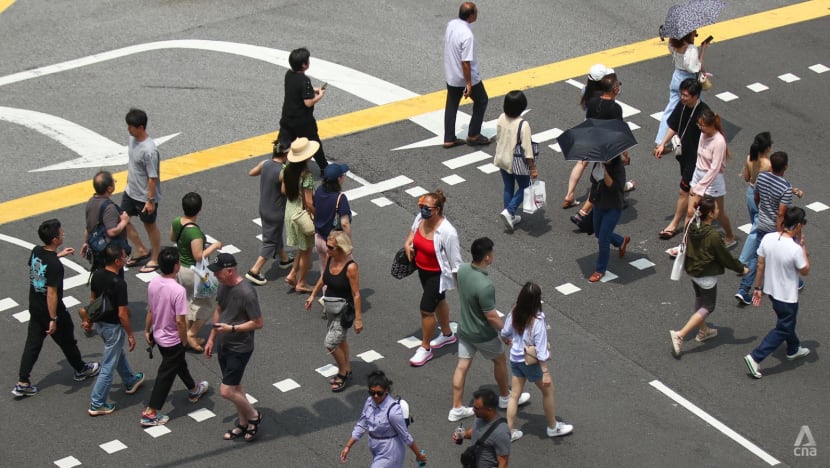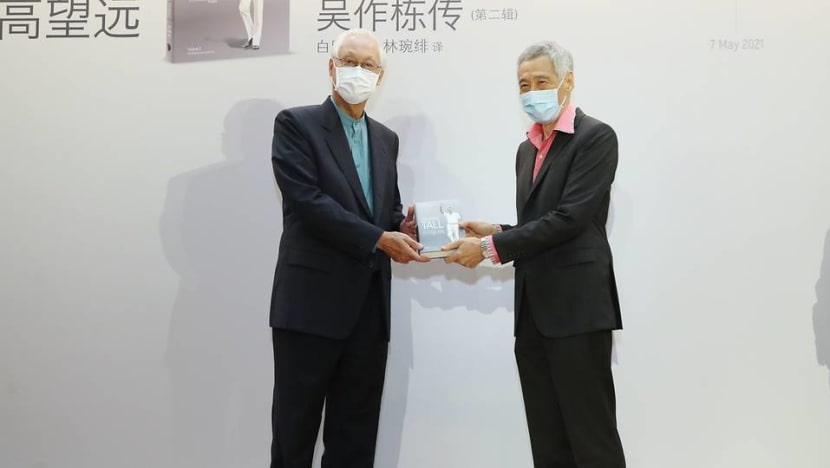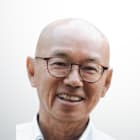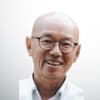Commentary: The art of listening to the people and being a little 'deaf' sometimes
All three leaders after founding Prime Minister Lee Kuan Yew have made being consultative a key feature of their incoming premiership. It's a challenging tightrope to walk, says former veteran newspaper editor Han Fook Kwang.

File photo of people crossing the street at South Bridge Road in Singapore. (Photo: CNA/Syamil Sapari)

This audio is generated by an AI tool.
SINGAPORE: What is the one thing every incoming prime minister pledges to do for the people?
Listen to them and take their views into account when formulating policies.
All three leaders after founding Prime Minister Lee Kuan Yew have made being consultative a key feature of their incoming premiership.
When Mr Goh Chok Tong stepped into the giant shoes of Mr Lee in 1990, he made it his signature theme, one which he hoped might lead to a gentler, kinder Singapore.
But he had to change tack soon after.
Following the disappointing results of the snap General Election (GE) he called a year into office, he was forced to review his approach when the party’s share of the votes dropped to 60.97 per cent, down from 63.17 per cent, including the loss of four seats to the opposition.
In the book, Standing Tall, Mr Goh talked about it in this excerpt:
"Having staked the election so heavily on his new consultative style, the result was an embarrassing bruise to (Mr Goh's) brand. The result he would admit three decades later, shaped his office. 'It accelerated my growth as a political leader,' he shared candidly. 'Although I would still listen to feedback, I could be a little 'deaf' sometimes,' he said.
'In other words, I had to carry on, but there were certain things I could choose not to pay so much attention to, which meant I could be firm and tough. Consultation did not mean listening to everyone all the time.'"

Mr Goh’s early adoption of a more consultative approach was a natural outcome of his own personality and an attempt perhaps to carve out a different path from his political mentor who was known for his tough authoritarian style.
Prime Minister Lee Hsien Loong, who took over from Mr Goh in 2004, also spoke of a more open government when, in a speech just before he took over, he said:
“I have no doubt that our society must open up further. The growing participation and diversity over the last two decades have been vital pluses for Singapore enabling us to adapt to changing conditions and to the needs and expectations of a new generation.
"They are key to providing Singaporeans an emotional anchor ... I have pushed this process. Looking forward, one important task of the Government will be to promote further civic participation and continue to progressively widen the limits of openness.”
As with Mr Goh, every leader after the late Mr Lee has found it challenging walking a tightrope.
How to win the next GE with as large a mandate as possible but stay true to the principles that have defined Singapore’s success?
The defining election for PM Lee in this respect was in 2011 when the ruling party suffered a nationwide swing against it, losing Aljunied GRC to the Workers' Party in the process.
Unhappiness over the shortage of public housing, overcrowded MRT trains and buses and the large influx of immigrants caused the electoral setback.
If the government was listening to these complaints, it did not act in time.
In one of the last few rallies leading up to Polling Day, PM Lee acknowledged that the government could have moved faster in addressing shortfalls in housing and transport.
"We are trying our best on your behalf. And if we didn't get it right, I'm sorry. But we will try better the next time," he said.
But PM Lee showed he was able to respond when needed, and the government acted on these issues, achieving a stunning comeback in the 2015 GE when it regained much of the ground lost previously.
A BIGGER CHALLENGE TODAY
Fast forward to 2024 and to the new incoming prime minister, Deputy Prime Minister Lawrence Wong, who will take over from PM Lee this year and has made a similar pledge to listen more.
At the party conference in November last year, this was how he put it:
"I don't start with the assumption that I know everything or have the answers to all problems because I certainly don't," he said.
"Instead, I'd prefer to start by listening, hearing a diverse range of perspectives and views and staying open to different ideas. In the end, I will have to decide.”
The words may sound familiar, but Mr Wong will have a bigger challenge compared to his predecessors in finding the right balance.
Singaporeans are more active now in voicing their views and pursuing their causes. Perhaps Mr Goh and PM Lee did succeed to some extent in allowing more civic space to open up.
Or perhaps it is an inevitable development as Singapore society matures and politics become more contested.
Add into the mix the role of social media in amplifying personal and public views and you have the makings of a formidable political challenge for any leader.
Already, Mr Wong’s 4G team have had to confront many more issues as a result of public opposition to government plans than their predecessors.
The recent reaction to SimplyGo fare cards and the termination of bus service 167 are the latest two when the government has had to reverse already publicly announced plans.
Opposition to the Housing Board’s plans for a new town in Tengah, which will house 42,000 homes, is another example.
Nature groups led the way with calls to preserve all or part of the forested area which will make way for the new homes. The merits of Singapore’s housing needs are now being debated together with that of preserving greenery and wildlife such as the leopard cat and the harlequin butterfly.
In December last year, some Sembawang Road residents were up in arms over a plan to build a funeral and columbarium complex in the Nee Soon area. Bad for feng shui and property prices, they protested.
FINDING THE RIGHT BALANCE
Managing differences in society is expected of political leaders in every democratic society.
Some countries do a better job than others - Switzerland and Japan come to mind - while in others, such as the United States and United Kingdom, it has become more difficult to get a consensus on national issues.
Singaporeans are a practical people and not ideologically partisan one way or another.
But the country appears to be transiting to a more “normal” democracy in which dissent and opposition will become more commonplace.
Looking at what is happening over the last year or so, it seems clear that on party politics, the government has not changed its approach - giving no quarter to opposition members both in parliament and outside the House, leveraging the Protection from Online Falsehoods and Manipulation Act (POFMA) where deemed necessary.
But on the public front, it is trying to find the right balance between being consultative and firm on matters of principle.
Its preference since Mr Goh’s time has been to conduct nationwide dialogues and discussions with various groups in an organised way to gather feedback and ground sentiment on issues. The Our Singapore Conversation exercises were conducted under PM Lee’s premiership while The Next Lap, Remaking Singapore and the Singapore 21 initiatives were undertaken in Mr Goh’s tenure.
The recently concluded Forward Singapore conversations were Mr Wong’s major listening exercise, and the thinking and ideas that emerge from it will likely shape the party’s platform in the coming GE.
But it is how he deals with opposing public sentiment that emerge spontaneously and unexpectedly that will determine public perception of his leadership style.
Han Fook Kwang was a veteran newspaper editor and is a senior fellow at the S Rajaratnam School of International Studies, Nanyang Technological University.















.jpg?itok=xfUWMkvp)




